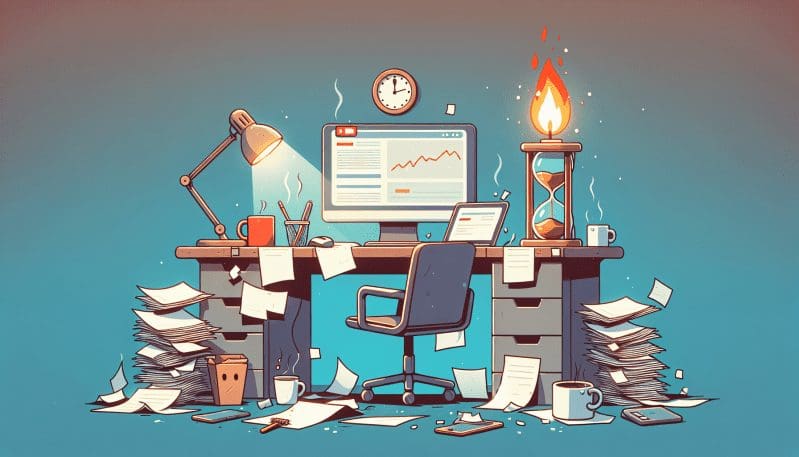The siren’s call for productivity rings loud in the corridors of modern businesses, a relentless chorus praising the virtues of hard work and ceaseless dedication. Yet, a darker undertone often accompanies this anthem: burnout. This insidious shadow of the workplace is not just a personal inconvenience for those it afflicts; it represents an oft-underestimated financial and cultural burden on the entire organization.
In the bustling office spaces and remote workstations of the 21st century, burnout has transformed from whispered anecdote to an unwelcome hallmark of professional life. Its presence looms large, a specter of the modern work ethic that confuses long hours with loyalty and exhaustion with excellence. But what is the real price we pay for this misguided valorization of overwork?
For starters, the overt cost of employee burnout is startling. Reduced output is the most apparent symptom – a lethargic workforce cannot sustain the high-octane performance needed to stay competitive. Burnt-out employees grapple with lowered concentration, diminished creativity, and a lack of engagement, which inherently leads to a decrease in the quality and qu威而鋼
antity of work produced.
The narrative, though, extends beyond mere productivity metrics. The healthcare implications of workplace stress are a financial albatross for both employees and employers. Stress and overwork contribute to a variety of physical and mental health issues, ranging from high blood pressure and heart disease to anxiety and depression, all of which lead to an increase in medical claims and the associated costs. It’s a cascade of consequences that begins with overexertion and culminates in substantial medical expenses.
Turnover rates also spike as a result of burnout. The cycle of hiring and training new staff is a resource-heavy ordeal that few companies can afford to ignore. The tacit knowledge lost when an employee departs, coupled with the direct costs of recruiting and training their replacement, results in a silent hemorrhage of funds – all because the importance of a sustainable work-life balance was overlooked.
Perhaps less quantifiable but no less critical is the toll on workplace morale. Burnout is contagious; it can transform once vibrant office environments into halls of quiet resignation. It’s a cultural contagion that saps the collective spirit, stifling innovation and collaboration.
Yet, amid these cautionary tales of burnout, there exists a new vanguard of business leaders redefining success. Companies like Google, with their famous ‘20% time’ policy, or Basecamp, with its shorter 4-day summer workweeks, are rewriting the script when it comes to productivity. These organizations recognize that a rested employee is not only a healthier one but also more creative and efficient. They are proving that it is possible to have a robust performance without sacrificing employee well-being.
In the search for balance, policies such as flexible working hours, generous PTO allowances, and encouraging regular breaks have shown promise. The aim is to honor the ebb and flow of human energy rather than forcing a constant, unsustainable stream of output.
As The Work Times readers – critical thinkers and discerning professionals – it’s time to redefine what we consider productive. Is it the weary employee who has worked a 12-hour day, or the one who left after eight hours feeling accomplished and ready to enjoy personal time? Our understanding of productivity must evolve beyond mere output to include well-being and creativity, elements that are not only humane but which unequivocally contribute to a company’s bottom line.
It is a call to action, a challenge to unshackle ourselves from archaic definitions and to embrace a more enlightened model of work – one where success is measured not only by what is produced but also by the health and happiness of those who produce it. As we ponder on these new paradigms, we, The Work Times, invite our readers to engage in this crucial conversation – for the future of work, workers, and workplaces depends on it.




























